Research from neuroscience shows that, as humans, we are wired for social connection.[1] So it’s no surprise that feeling like we have nobody to talk to can leave us with an overwhelming sense of loneliness and isolation.
Loneliness has been linked to mental health problems, like depression. Having depression can make it difficult to connect with people.[2] That’s because depression can make a person feel like they are a burden to others.[3] Loneliness has also been linked to physical ailments such as cancer, Alzheimer’s disease, and heart disease.[4]
The impact of having no one to express our feelings to, and to share our problems with, is undeniable. It can literally make us sick.

Loneliness doesn’t just affect people who have no friends or those who may have lost someone they could talk to about anything. It also affects those who are surrounded by others, yet still feel lonely inside. This usually happens when people do not feel truly understood or heard.
This article will tell you how to find people to talk to when it feels like you are alone, as well as how to cope when you have no one to talk to. It will also reveal some of the benefits of talking to others and will answer some common questions about having no one to talk to.
Sections
- How to find people to talk to right now
- How to cope when you have no one to talk to
- The benefits of talking to others
- Why do you have no one to talk to?
- Common questions
How to find people to talk to right now
The worst feeling is when you need someone to talk to but have no one. Maybe it feels like your family and friends don’t understand you or that none of them really care about your problems. Or perhaps you have no friends or family to share your issues with, even if you wanted to.
Here are 5 ways to find people to talk to when you have no one:
1. Call a crisis hotline
Having no one to talk to, especially when experiencing painful personal issues, can make you feel hopeless. If you are going through a crisis, it’s important that you get help right away.
You can call SAMHSA for support. SAMHSA is a confidential hotline that operates 24/7 and provides referral support to people with mental health and addiction problems. A representative from SAMHSA will be able to tell you about support options for your specific problem within your local area. This would include such things as treatment facilities, support groups, and community-based organizations.
For talking support from a trained counselor, you can call the National Suicide Prevention Lifeline, which is also open 24/7 and offers fully confidential support.
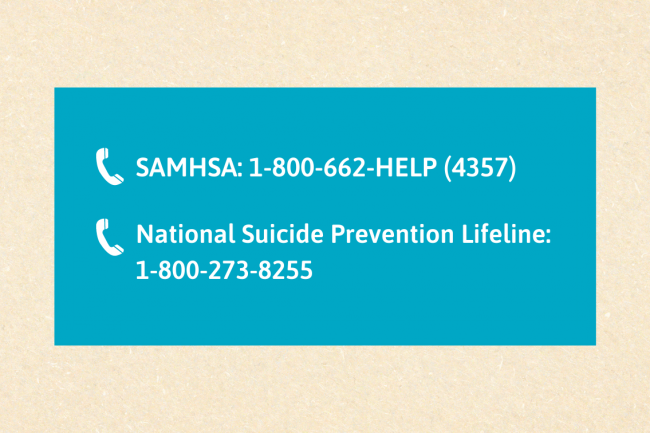
2. Visit an online forum
Forums are a great place to talk about your problems if you have no one to talk to, or if sharing something with your loved ones feels uncomfortable.
The benefit to online forums is that you can remain anonymous, and you can get almost immediate support from others. You also get to connect with people who are experiencing similar problems. It helps to talk to people who you feel understand you and who won’t judge you when you’re feeling alone.
A quick Google search will help you find a relevant forum to join. There are forums for everything these days. Say that your problem is addiction and loneliness. Simply type these keywords into Google, “forum for addiction and loneliness support,” and see what comes up.
3. Search for a therapist
Therapists are trained to help people with a range of mental health problems. If difficulties connecting with others have been a common trend throughout your life, a therapist can help you get to the root of this. They can also help you learn new ways of relating to people so that you can move forward and develop strong, healthy relationships.
Is there a specific issue that you need to talk to another person about, but there is no one you feel comfortable sharing it with? A therapist will listen with understanding and no judgment. They will help you process difficult emotions in a safe space.
We recommend BetterHelp for online therapy, since they offer unlimited messaging and a weekly session, and are cheaper than going to a therapist's office.
Their plans start at $64 per week. If you use this link, you get 20% off your first month at BetterHelp + a $50 coupon valid for any SocialSelf course: Click here to learn more about BetterHelp.
(To receive your $50 SocialSelf coupon, sign up with our link. Then, email BetterHelp’s order confirmation to us to receive your personal code. You can use this code for any of our courses.)
4. Join a support group
Depending on why you have no one to talk to, you can join a relevant support group.
In a support group, you will be able to share what you’re going through with people who understand how you feel.
Do you have no one to talk to because social anxiety makes it difficult for you to make friends? Try joining a social anxiety support group. You might find our article on how to find a social anxiety support group helpful in this regard.
Or perhaps you suffer from depression and find it hard to open up to people. Try to find a depression support group. Maybe you’ve just moved to a new city and have no friends or family nearby. In this case, you could look for a support group for loneliness.
Try to search for a local support group that relates to what you’re experiencing.
5. Tap into existing social relationships
If you suffer from depression and you feel like a burden to others, then sharing your feelings with people can be tough. But opening up to others offers stress relief and can lighten your emotional load.[5]
If you refuse to open up to people, you’re not giving them the opportunity to provide you with support. You also don’t get to prove yourself wrong: that you’re not a burden and that others do care about you.
To become more comfortable opening up to others, start small. Share a bit about your day, along with your feelings, with someone you know is a good listener.
You might also like this article on how to reconnect with a friend.
How to cope when you have no one to talk to
There are a few strategies that can help you find peace with loneliness. Some include solitary activities that will help you process your emotions on your own and boost positive feelings. Others involve giving yourself opportunities to connect with people so that, over time, you can build friendships where it feels safe to open up and share your feelings.
Here are 6 strategies to help you cope when you have no one to talk to:
1. Keep a journal
If you have no one to talk about your problems and feelings, writing about them could be your next best option. Journaling can help people process difficult thoughts, feelings, and experiences.[6] In a way, journaling helps release and free people from pent-up emotions.
If you want your journaling to be effective, you should focus on emotional writing. This is the style of writing that has been associated with decreased symptoms of depression[7] and anxiety.[8] Emotional writing is writing about your thoughts and feelings rather than about facts alone.
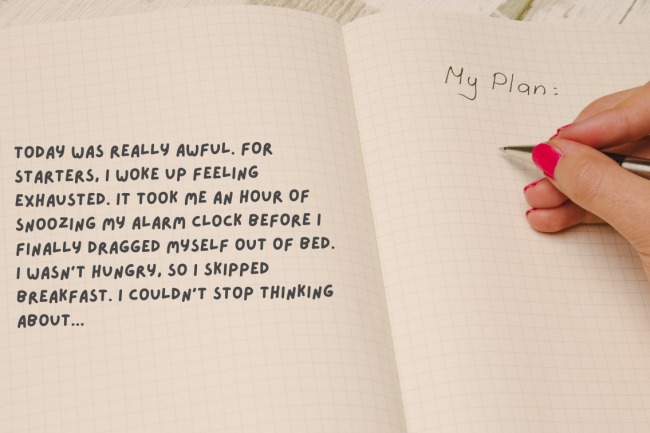
2. Practice self-care
Having no one to talk to might make you feel depressed, so it’s important to do things that make you feel good. This will help boost your mood, and by practicing self-care, you will be making the most of your alone time.
Self-care involves doing things for yourself that promote physical and mental wellbeing. Anything that could be considered healthy and that makes you feel good falls under self-care. Since different things appeal to different people, self-care is somewhat subjective.
Some ideas for self-care could be going for a walk in nature, eating a nutritious meal, taking a vacation, having a warm shower, taking yourself on a coffee date, or meditating. Try to fit one self-care activity into your schedule every day.
3. Learn a new skill
Maybe you have recently gone through a big life change, such as losing a special loved one, moving far away from your family, or becoming newly single.
Whether life circumstances have brought on your feelings of loneliness or you’ve felt lonely for a long time, learning a new skill can help you develop meaningful social ties.
Have you always wanted to learn how to paint? Try searching for art classes in your local area. Exploring your interests in the company of like-minded others will help you meet people who you share common ground with. These people could become great new friends and people you can talk to.
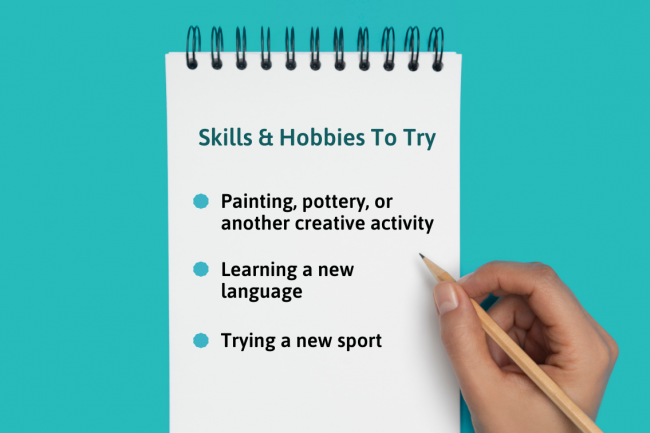
4. Try volunteering
Supporting a noble cause can add meaning to a life that once felt meaningless. Research shows that volunteering can help you feel more connected to others and less alone.[9] It can also be a place to develop strong social relationships with people who hold the same values as you.
A Google search will help you easily find charities in your local area that need volunteer support. Some ideas could be working with animal welfare organizations, working in orphanages, working in childhood education, and working with domestic abuse survivors.
5. Join a group exercise class
Physical activity supports emotional health as well as physical health and can help beat feelings of loneliness.
Exercise promotes emotional health because when we work out, our bodies release feel-good hormones that act as natural mood boosters.[10] In addition to increasing feelings of well-being, exercise classes can be a place to build new friendships with people who share similar interests.
6. Explore spirituality
According to research, people who often attend religious services report having more social connections. They also report having more positive social interactions compared to those who attend religious services less often.[11]
Religious institutions, like churches, mosques, and synagogues, can be a great source of support for people who feel alone. Leaders and members are often very welcoming to those in need. Some institutions may even offer free counseling services.
If you are not affiliated with any religious group, perhaps there is another spiritual path that fits your belief system and that you’d be interested in exploring. For example, some types of yoga practice are considered spiritual.
What are the benefits of talking to someone?
Having strong and healthy relationships, which includes having people you feel able to talk to about personal issues, is extremely important for overall mental and physical health.
Here are 3 benefits of having someone to talk to:
1. Relief from stress
Communicating personal feelings to another person is one way for people to process and release any negative emotions that they may have built up inside.
Here’s a helpful analogy: imagine, for a moment, a pressure cooker. If you don’t release steam from its lid, its contents will boil over. The same applies to our emotions—if we do not find a release for them, they will overwhelm us and can eventually lead to the development of mental health issues.[12]
2. Promotes better decision-making
Talking to other people about our problems aids decision-making and problem solving because it reduces the “fight or flight” response in our brains.[13]
The “fight or flight” response is the body’s natural response to stressful situations. When the body senses something threatening in the environment, survival mode kicks in. The body’s natural instinct is to either stay and “fight” the threat or to “flee” from it. When in this mode, people tend to think less rationally. For example, imagine your boss makes a complaint about your work, and you start thinking that you will be fired.
Talking about your problem with someone who is emotionally removed from it can help you to see it more objectively and take appropriate action from there.
3. Improved mental and physical health
Research shows that having healthy social relationships, which includes having people you can reach out to, is related to better overall health.[14] Specifically, having strong social ties has been associated with a longer life span, whereas loneliness and having no one to talk to have been connected to depression, poorer physical health, and a shorter lifespan.[15]
4. Why do you have no one to talk to?
There could be many reasons why you have no one to talk to. Sometimes it could be because of something temporary, like moving to a new city and not having any friends. Other times, there could be something deeper, but less obvious going on, that prevents you from establishing healthy connections.
Below are 4 reasons why you have no one to talk to:
1. You have an insecure attachment style
The relationship you developed with your parents, or primary caregivers as a child affects your ability to form and maintain close relationships as an adult. If your parents neglected your needs or failed to meet your needs consistently, you may have developed an “insecure attachment style” as an adult.[16]
People who are insecurely attached may find it hard to trust others and to open up to them. They may have learned to rely on themselves, as that is what they needed to do to survive growing up.[17]
2. You are depressed
If you used to have people you could talk to, but you can pinpoint a time where you started withdrawing from others, then you may be depressed.[18]
People who are depressed lack energy which makes it difficult to function in all aspects of life, including socially.[19] They also tend to have self-esteem issues which make them feel that they are burdensome to others and that they are unworthy of others’ support.[20] These symptoms make it difficult for people who are depressed to seek others out and ask for help.
3. You’ve just been through a big life change
Sometimes going through a big life change can separate you from close friends and family and make you feel alone, like you have nobody to talk to.
If you recently moved to a new city, it can be hard to make friends initially. It takes time to feel comfortable enough talking to new friends about personal issues.
Break-ups are another big life change that can make you feel alone, especially if your ex-partner was your go-to person to talk to. If you and your ex-partner have mutual friends, it may feel awkward talking to them after break-up. You may find that you need to put more work into nurturing relationships that you may have neglected when you were dating your ex.
4. You’re the product of an individualistic society
The values and beliefs that people hold are influenced partly by the society and culture in which they grow up. If you come from Western Europe or North America, then you probably grew up in a society that admires individualism.[21]
In individualistic societies, people value things like independence, self-sufficiency, and personal accomplishments.[22] In collectivist societies, opposite values are appraised.[23] People are encouraged to do things that serve the greater good. They are taught that being helpful and reliable is commendable.[24]
Having an individualistic mindset can help explain why it feels difficult for people who have this cultural upbringing to reach out and talk to others.
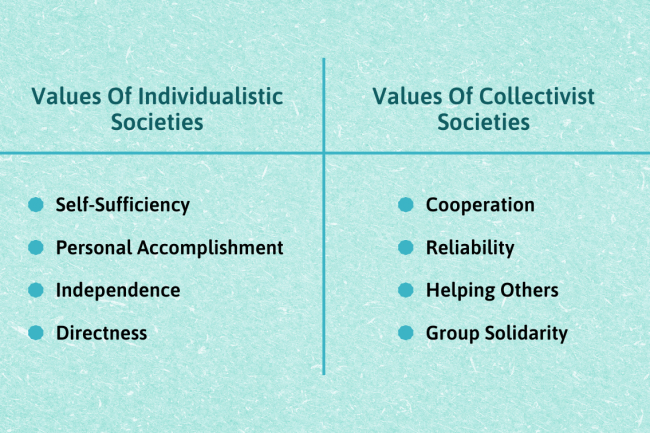
Common questions
Is it normal to have nobody to talk to?
A 2021 survey showed that 36% of all Americans felt serious loneliness, and this number was higher for young adults, at 61%.[17] These statistics suggest that many people probably feel disconnected from others at some point and feel like they have nobody to talk to.
Who can I talk to when I have no one?
You can call SAMHSA’s 24/7 confidential hotline, and an operator will refer you to someone who can help with your specific problem. You can also reach out to a therapist, join an online forum, or find a support group in your local area.


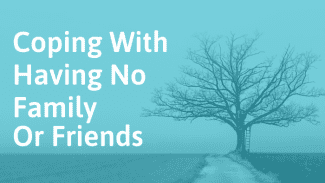


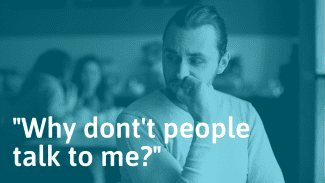
There isn’t anyone to speak with.
I dont know if i should try more stuff then just facebook because thats usually wherei find people.
If only I could get myself to actually leave the house or attempt a conversation
Today I woke up and no one was there and I got so scared and no one cared about how I felt after it. I feel so sad
Yes its so upsetting . I have noone and the advice is always so irrelevant ????
not useful at all
It is amazing that there are billions of people on the planet and sometimes we can’t find one to talk to.
right? and some of them are extremely catty
Catty, you say?
It DOES NOT HELP ME on journal part… Cause it’s like talking to the wall / one sided when I need someone to talk to and I don’t have one and they say keep journal… It does not work for me
I’ve kinda accepted that there isn’t actually anyone to speak with, anywhere.